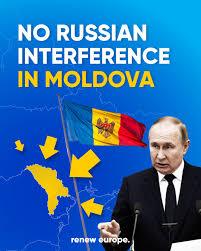Significant Developments in Moldova: A Current Overview

Introduction
Moldova, a small Eastern European country bordered by Romania and Ukraine, has been in the spotlight recently due to its unique geopolitical position and ongoing developments. As the region continues to face challenges related to economic stability, political tensions, and energy security, Moldova’s situation remains crucial not only for its citizens but also for Europe as a whole.
Political Landscape
In the last few months, Moldova has experienced considerable political shifts. The parliamentary elections held earlier this year led to a coalition government formed by pro-European parties, aiming to enhance ties with the European Union (EU). This shift is significant as Moldova seeks to distance itself from Russian influence, which has historically dominated the region. The new government is focused on implementing reforms to address corruption and boost economic growth, crucial steps for future EU integration.
Economic Developments
The Moldovan economy has shown signs of resilience amid global uncertainties. Recent reports from the World Bank indicate that Moldova’s GDP grew by an estimated 3.5% this year, aided by increased agricultural exports and remittances from Moldovan citizens working abroad. However, challenges persist, including rising inflation and energy dependence, particularly on natural gas imports from Russia. The government is currently negotiating with European energy suppliers to diversify its energy sources, an essential measure to ensure energy security.
Cultural and Social Aspects
On the cultural front, Moldova has been promoting its rich heritage through various festivals and events. The annual Wine Festival, celebrated in October, highlights Moldova’s ancient winemaking tradition, drawing both tourists and locals to celebrate their cultural identity. Additionally, there is a growing movement to preserve the Romanian language amidst ongoing discussions about national identity, with many Moldovans advocating for closer cultural ties with Romania.
Conclusion
Moldova stands at a crossroads, facing both challenges and opportunities as it navigates its path in a rapidly changing geopolitical landscape. The government’s efforts to reform its political and economic systems are critical for securing its future alignment with the EU. As Moldova continues to seek stability and enhance its international relationships, the implications of its developments are likely to resonate beyond its borders, affecting European security and cooperation. Observers will need to keep a close eye on how these dynamics unfold in the coming months, as they could significantly impact the region.
